
March 11, 2024

Proxiio’s partnership with
Relativity provides access to many technology-assisted review tools that are incorporated
into the RelativityOne platform. One of the most widely used tools, Active
Learning, serves as a technology-aided solution designed to efficiently analyze
large datasets and predict the documents likely to be relevant for the review.
Using guidelines and requirements shared by the client counsel, Proxiio review managers identify the reviewers with highest level of experience and subject-matter expertise based on the facts of the case. They then design a workflow to derive the most value from Active Learning.
When case requirements demand relevant or key documents be identified quickly from large data sets to meet production timelines or prepare for trial, Proxiio utilizes the “Prioritized Review” queue to accelerate the learning model and ensure that the most relevant documents are identified first.
Active Learning enables us to significantly cut down on review expenses and streamline the time needed to finalize the review in accordance with counsel directives. We utilize our proficiency in crafting workflows that decrease the necessity for human document review by as much as 75%, all while instituting safeguards to maintain uncompromised quality.
When dealing with numerous custodians and data sources, creating a review workflow that efficiently handles the review and production of documents in several iterations can present complexities. Using the Active Learning “Coverage Review” queue allows us to design a workflow that ensures new documents are seamlessly added to review queues and processed for production.
We utilize multiple Active Learning models for a project to
ensure documents processed by our review team not only meet the relevance
criteria, but also are appropriately flagged for Privilege, Confidentiality,
and other parameters. We also ensure any documents scored highly by the model
for a particular parameter receive a QC check, minimizing the chances of human
error.
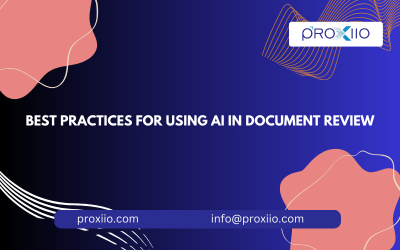
March 04, 2025
IntroductionArtificial Intelligence (AI) is revolutionizing the legal industry, particularly in document review. Byleveraging machine learning, natural language processing (NLP), and optical character recognition(OCR), AI tools streamline the analysis, sorting, and extraction of information in legal documents.These innovations not only save ...
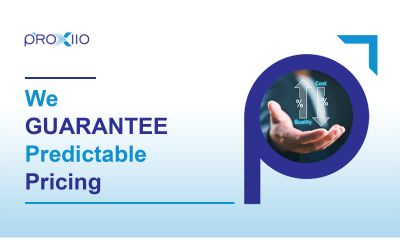
April 05, 2024
“Predictable pricing” is a phrase heard often when it comes to alternative legal solutions providers. In fact, it is used so often and without any merit that it has become meaningless to clients of outsourced legal solutions companies. We hear ...
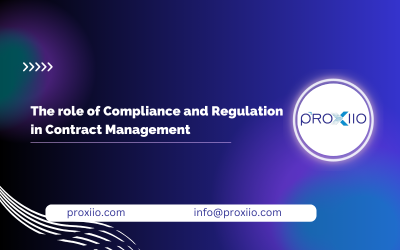
March 12, 2025
IntroductionContracts form the backbone of critical business relationships — vendor agreements, client partnerships, employee contracts, and more. Effective contract management not only streamlines business operations but also mitigates risks related to non-compliance, which can lead to financial penalties, legal battles, ...
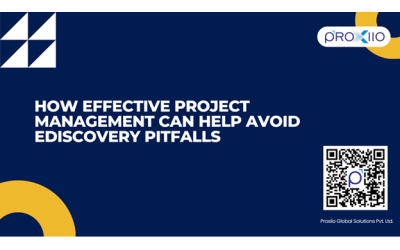
May 21, 2025
In today’s digital-first legal environment, the explosion of electronically stored information (ESI) has fundamentally reshaped litigation. While eDiscovery solutions powered by artificial intelligence (AI) offer unparalleled efficiency and unprecedented speed, they can also become complex and overwhelming without proper oversight.That ...
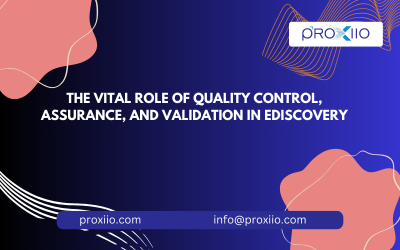
March 04, 2025
The Vital Role of Quality Control, Assurance, and Validation in eDiscoveryeDiscovery involves collecting, reviewing, and analyzing digital data for legal purposes, a cornerstone of modern legal practice. As legal cases increasingly rely on electronic evidence, ensuring the integrity, accuracy, and ...
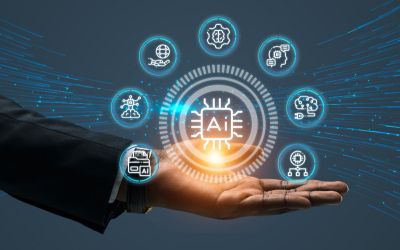
March 12, 2024
“You can have a job if you wanted to have a job for personal satisfaction. But the AI would be able to do everything,” quoted Elon Musk which squarely summarizes the challenge that AI could pose to all professionals including ...